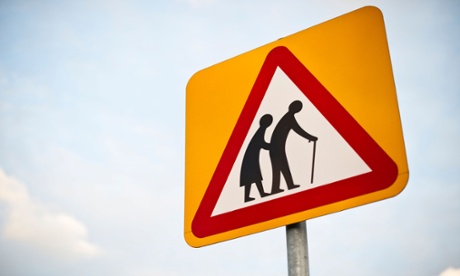
Every day I read about something that will help me stay alive for longer. Usually, it’s something dietary: a bean, a berry, some kind of vegetable that we use to feed cattle. Then there is a message about moderation. Somehow, I soak this information up, regurgitate it to my friends over too many units as we nod in agreement that we should do something about ourselves. Information is power, but sometimes it feels more powerful to ignore it. Am I slowly killing myself ? Clearly. Will I live to regret it? No idea.
But there are always new things to worry about. One survey shows that more people died last year taking selfies and falling off things than in shark attacks. This isn’t funny really, but it seems to me I was always far more likely to die in the pursuit of some narcissistic exercise than anything that involves swimming. Is this stupid way to die any worse than some sensible way to die? Because the sensible way to die involves getting really old, which is terrifying.
The cool thing is not to be afraid of death, but of the actual dying bit – and when I was younger, I am sure I said that. Now I am afraid of all of it: cancer, Alzheimer’s, having every day overcast with cloudy, arthritic joints. Then I strip my fears to the bone and they are about being dependent. And losing my sense of self. And needing other people. And I wonder: is this a fear of dying of old age – or actually a fear of old people?
This may be a vile thing to say but it’s there, isn’t it? We constantly talk of an ageing population in an abstract way. This is the subtext to why we may benefit from taking in refugees. They will care for us in the end. We constantly express our disgust at the way old people are treated but we don’t want to see them unless they are healthy, happy and hiding their diseases. Jackie Collins was amazing to do as she did, but most of us couldn’t, or wouldn’t, keep up appearances like that.
The reality is that many of the illnesses of old age will hit if we get to 80, and most of us are befuddled by what to do. We must keep alive and be kept alive while actually being given minimal care and regarded as an embarrassment. It is as if the time-bomb of this unproductive, decrepit layer of society is a theoretical discussion that is solved by bolting down green juice and behaving like immortals.
Doctors who deal with mortality, day in and day out, can be good to bad to brilliant. The best I have seen have been paediatricians – possibly because there is something so unnatural about children dying that it cannot be ignored. When one of my children was in an intensive care ward, two of the eight children there died on the same day. Everyone was openly devastated: the parents, the nurses and the doctors. They got us together and talked about how they felt and how they would work for our children.
On cancer wards, though, I have seen curtains pulled round a bed while a corpse is removed, with not a word said to the other patients. But what some of the best thinkers who happen to be doctors (Henry Marsh and Atul Gawande, for instance) are now talking about is both ageing and death, and how to have the best possible end, knowing that it is going to end. There is a consistent line coming from medics worried about the suffering caused by overtreatment. This means thinking about what to prioritise – especially with the elderly. It is to talk about quality of life and a return to personhood. What does this individual need? And the answer may not be medicine.
Gawande took his father’s remains to Varanasi, sprinkling his ashes in the Ganges water. He knows, as a good Hindu, that this rite is sacred. But as a doctor, he also knows that to sip the holy polluted water is dangerous, so he premedicates himself. However, he still ends up with giardia. But what comes from his experience is his father’s vitality, his work and connections remaining vivid till the end.
This is in sharp contrast to what we know is actually one of the biggest diseases of old age: loneliness. It may well be a cliche to contrast Gawande’s extended family to the atomised existence of the west, but the figures speak for themselves: a million people over 75 say that they don’t know their neighbours and haven’t spoken to anyone for a month. Their company is a TV set.
So when physicians talk of the myriad problems of treating the elderly, when we talk about palliative care and assisted suicide, we must be honest. The reality is a set of policies that have slashed social care, underpinned by the idea that caring is itself a low-status, feminised activity. The corollary is that what it means to be cared for is to be the lowest of the low. Old. Alone. Helpless. So we shut old people away as we seek to prolong our own lives. Indeed, a privilege of the west is we now fear not dying, but ageing, as much as we fear death itself. We literally cannot face our own futures.

